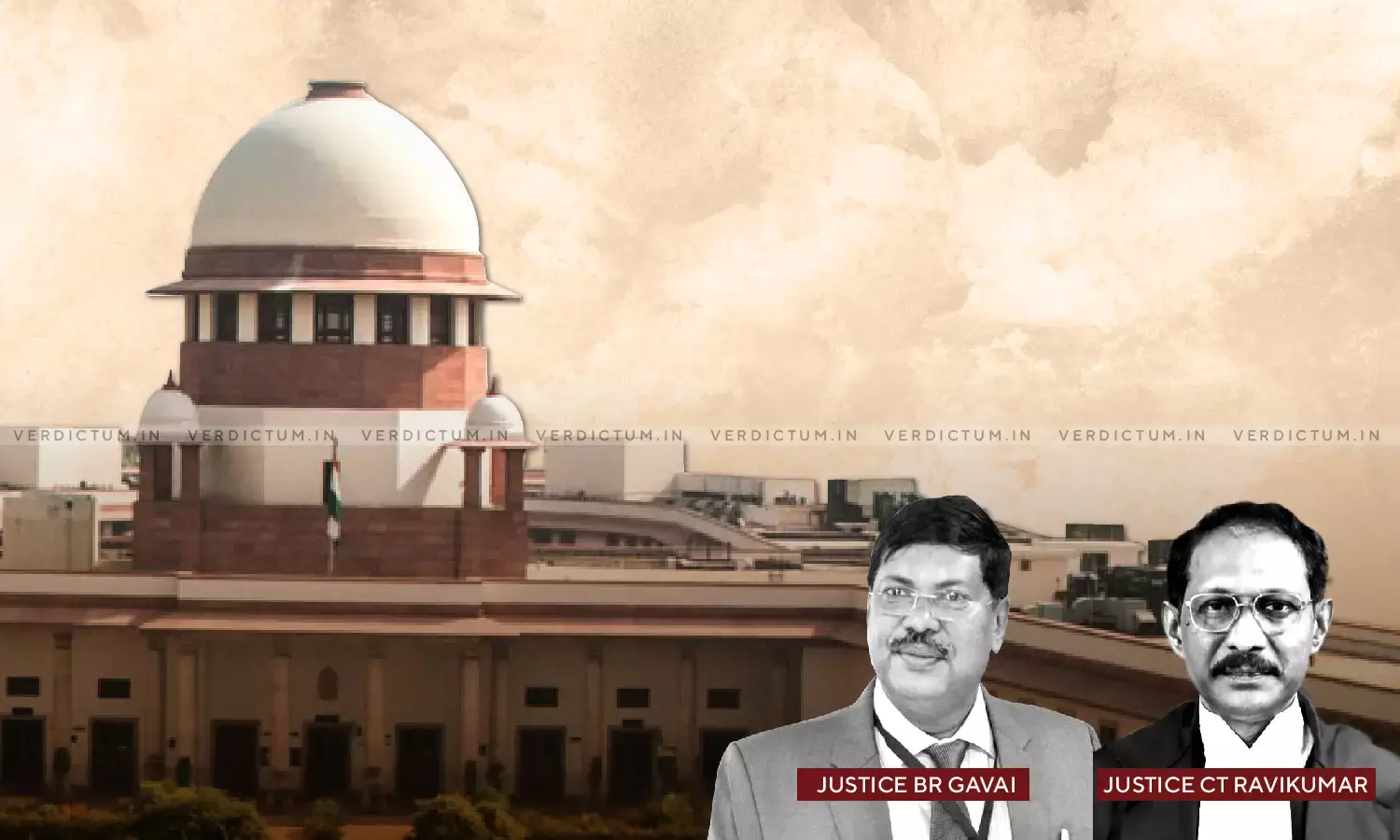There Is A Distinction Between Mistake And Trickery- SC Quashes HC's Judgment Passed On Factually Erroneous Premises

A Supreme Court Bench of Justice BR Gavai and Justice CT Ravikumar heard an appeal against a judgment passed by the Punjab and Haryana High Court. Quashing the judgment, the Apex Court observed that "there is an essential distinction between mistake and trickery. In the present case, it is sought to be argued on behalf of the respondentsplaintiffs that the averment in paragraph (15) of the plaint was with regard to a lis on the basis of the agreement. It is submitted that the earlier suit was not based on the agreement and as such, there was no suppression. We find the argument to be unsustainable. We are of the view that such a statement was made as a trickery so as to obtain the judgment by misleading the court."
Senior Counsel Sidharth Luthra appeared on behalf of the appellant-defendant. Senior Counsels Narender Hooda and Gagan Gupta appeared on behalf of the respondents.
The original plaintiff had entered into an agreement to sell some agricultural lands. As per the agreement, the sale deed was to be executed. As per the plaintiff, a family settlement also took place between him and the appellant-defendant in November 1993.
On the basis of the family settlement, the plaintiff initially filed a suit for declaration against the appellant-defendant. However, the suit was dismissed as withdrawn on the basis of an application filed by the plaintiff.
Then the plaintiff filed the present case seeking specific performance on the basis of the alleged agreement to sell. The Trial Court dismissed the suit.
Aggrieved, the legal representatives of the plaintiff (respondents) filed an appeal before the Additional District Court. The Court allowed the appeal and decreed the suit of the plaintiff for specific performance of an agreement to sell.
The appellant-defendant filed an appeal before the High Court, which was dismissed. Resultantly, the appellant-defendant approached the Supreme Court.
The Supreme Court affirmed the Trial Court's reasoning that a person cannot be permitted to assume inconsistent positions in the court of law to play fast and loose and to blow hot and cold. Evaluating the judgments passed by the Trial Court and High Court, the Supreme Court opined that "It could thus be seen that there is total nonapplication of mind by the High Court. The High Court did not even care to refer to the grounds raised in the appeal with regard to the effect of nondisclosure of filing and withdrawal of the earlier suit."
Relying on a catena of judgments including AV Papayya Sastry and Others vs Govt. of AP and Others, the Court observed that there is an essential distinction between mistake and trickery. It held that the argument that the earlier suit was not based on the agreement and that there was no suppression was unsustainable. It further opined that the statement was made as trickery to obtain the judgment by misleading the Court.
Commenting on the judgment passed by the High Court, the Apex Court opined that the High Court's had passed orders on factually erroneous premises. To that end, it was said that "As already observed hereinabove, the judgment of the High Court is passed without application of mind. The High Court has gone on a premise that the trial court had decreed the suit and the Appellate Court has dismissed the appeal. This is factually erroneous."
Resultantly, the Supreme Court ordered that the appeal must be allowed and the judgment and orders passed by the District Court and High Court must be set aside, while upholding the judgment of the Trial Court.
No orders were passed regarding costs.
Cause Title - Yashoda (Alias Sodhan) v. Sukhwinder Singh and Others
Click here to read/download the Judgment

